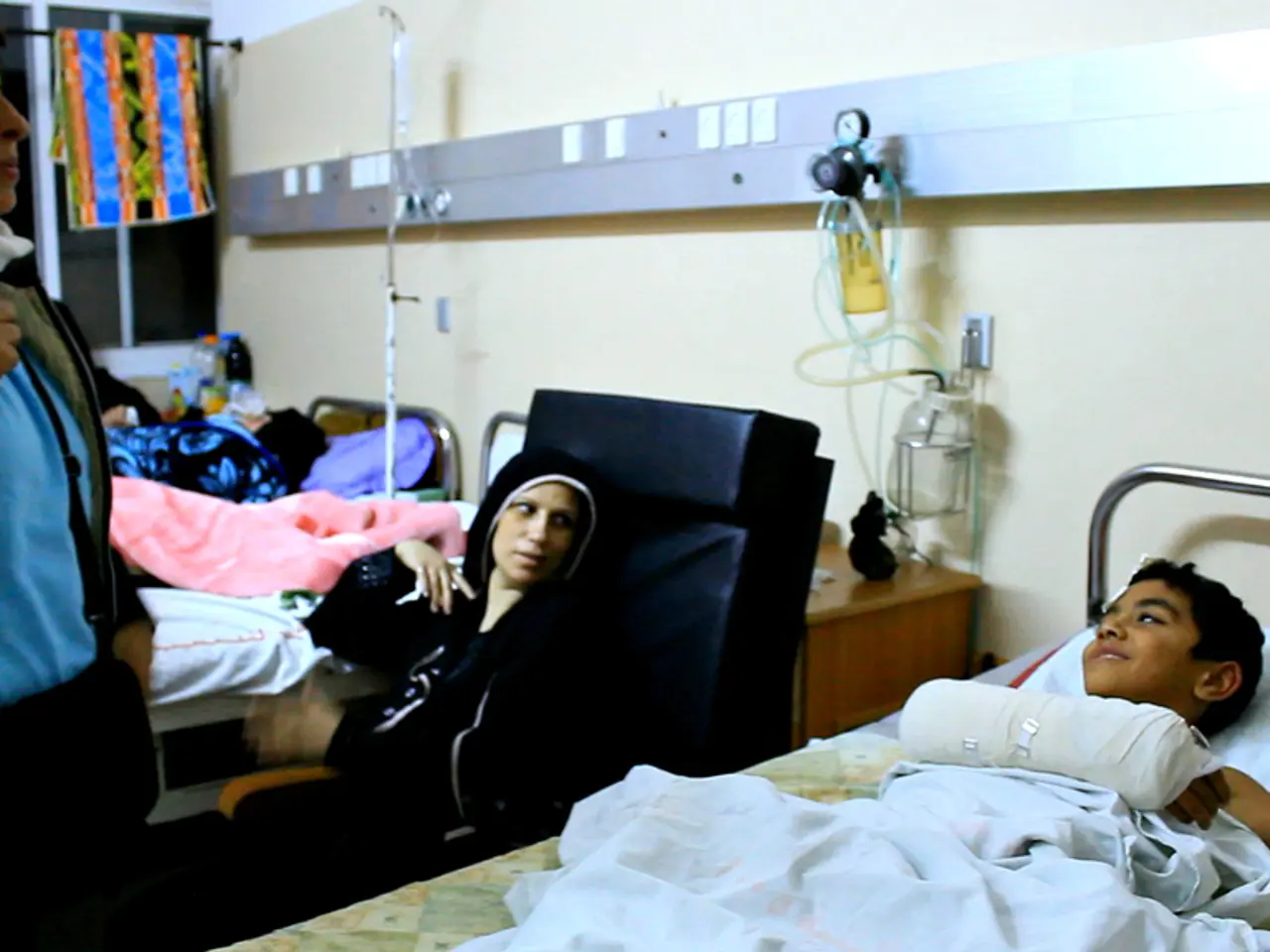Apprehensions about Strict Selection Process for Pharmaceutical Therapies
The National University Hospital of Iceland (Landspítali) is grappling with a potential crisis in drug treatments, primarily due to insufficient funding and prolonged infrastructural challenges.
The construction of a new treatment center for Landspítali, which began six years ago, was initially expected to open in 2023, but completion has been pushed back to the end of 2028, with full operations anticipated around 2029–2030. Even once operational, ongoing construction and societal changes will require continued development. Current facilities for outpatient and day-patient services are described as "very inadequate and insufficient," impacting the hospital’s ability to deliver adequate services, including proper drug treatments.
Criticisms of the government's financial plans suggest a lack of clear prioritization and vision for healthcare funding. The government's four-year financial plan has been criticized for unrealistic assumptions and absence of strong provisions for debt reduction or sustainable funding strategies, leading to concerns about the hospital’s ability to finance essential treatments effectively.
As a result, there are fears that patients might have to be handpicked for access to drug treatments, implying that not all patients may receive necessary medicines if funding remains inadequate. This could lead to restricted access to crucial drug treatments, possible deterioration in patient outcomes, increased waiting times, and decreased quality of care.
Jakob Falur Garðarsson, CEO of Frumtök, has warned that a newly diagnosed cancer patient may not receive the same treatment as one who came the day before. The hospital's CEO sent a letter to the Minister of Health in February expressing concerns about the lack of funding for new treatments. In a memorandum submitted prior to the budget, Landspítali stated that funding for the drug budget would need to increase by 2.078 billion ISK to pay for already adopted treatments and ensure access to new medications on par with neighboring countries.
Garðarsson proposes that Iceland base its pricing on average prices in the Nordic countries instead of the lowest price. He believes that a change in the drug pricing model would be a major improvement but would still need to be supported by increased funding. Frumtök has pointed out that Iceland's small market size is not taken into account in the country's drug pricing model, which partly explains limited access to new medications.
The hospital's drug committee no longer considers it feasible to approve coverage for new medications for new patients. A report from the hospital's drug committee states that Iceland will quickly fall behind other Nordic countries without additional funding for drug purchases. Discussions between the hospital and the Ministry of Health regarding increased funding have taken place but have yielded little hope for this year. The warning about insufficient funding was not heeded during the budget process.
Garðarsson urges authorities to increase funding and change the drug pricing model to ensure healthcare that stands up to comparisons with Iceland's neighbors. Equality in access to treatments may become difficult if new patients are unable to access treatments already in use. The potential implications for patients in Iceland are significant and underscore the urgent need for action to address this crisis.
- The strain on medical-conditions management at Landspítali, caused by inadequate funding and infrastructure challenges, could potentially lead to science-based health-and-wellness improvements being unattainable for some patients, negatively impacting their financial well-being and overall quality of life.
- To mitigate the potential crisis in drug treatments at Landspítali, it is recommended that the government prioritize healthcare funding, change the drug pricing model to reflect average prices in neighboring countries, and seek increased funding for essential treatments, thereby promoting science, business, and well-being for citizens of Iceland.




